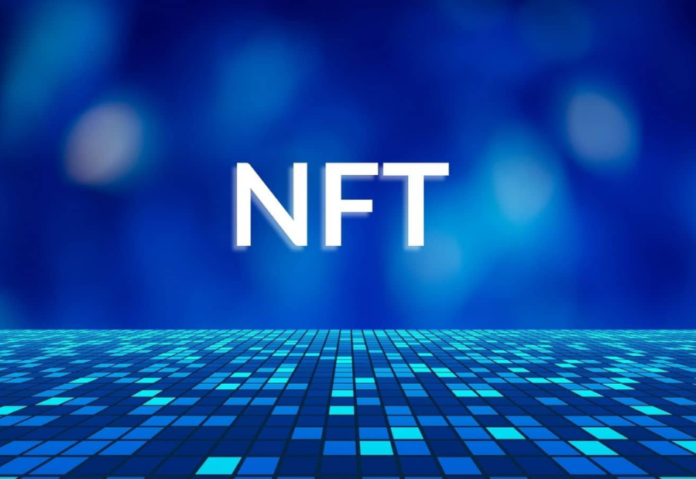Here are 5 startups demonstrating how NFTs are much more than just JPEG images and can be utilised to own property, generate royalties, combat climate action, or advertise
In 2021, non-fungible tokens (NFTs) took the world by storm, with the sale of scores of million-dollar NFTs by various global artists, musicians, and actors. The same year, Indian MNCs such as Tech Mahindra and music labels such as T-Series hopped on the NFT bandwagon and Indian A-list celebrities unveiled their NFT collection.
However, this year, with the crypto market experiencing a downward trend in the last few months, liquidity and trading volumes in the global NFT market have declined.
NFT sales worth $12.22 billion were recorded in the second quarter of 2022, down by 63.93% from the first quarter, which saw NFT sales of $33.88 billion.
Nevertheless, the macro market trends have not stopped Indian innovators, founders, entrepreneurs, and builders from continuing to believe in the transformative potential of NFT technology.
In fact, several Indian startups are actively leveraging NFT tech and demonstrating how blockchain-based asset ownership could bring about significant changes in a wide range of industries, including real estate, music, and advertisement. In tandem, these Indian startups are also tackling some of the most pressing concerns such as the Indian agrarian crisis and climate action through NFTs.
Here are five such Indian NFT startups utilising NFT technology in innovative ways.
Founded by Parv Prabhakar, Ryan Smith, and Cody Coex Foo in 2022, Estate Protocolis bringing ownership of real estate through NFTs.
Parv said, “We are trying to solve the inefficiencies in the real estate market by making real estate purchasing accessible for the rest of the 90% of the population and democratising the exclusive system, which was previously limited to the elite class.”
The startup is enabling fractional ownership of NFTs, where investors can split the cost of owning real estate among several people, and the amount of capital required to enter the market is lowered. “With fractionalising, we shift the power to a common man who can buy NFTs and get ownership,” said Parv.
In 2021, the startup raised $50,000 in a Pre-Seed round. It is in the process of closing $1 million in funding by September this year.
Started by ex-Gaana CEO Prashan Agarwal, FanTigerconnects artists with fans through NFTs. Owning a fractionalised NFT of a song allows the holder to earn royalty income based on the song’s performance on Spotify, YouTube, Gaana, and other platforms.
Prashan said, “With music streaming, artists typically hand over copyright and royalty income to platforms and record labels, and they work on a fixed fee. As a result, their income is reduced, and they end up making most of their income (up to 90% in many cases) from events. With FanTiger NFTs, artists and fans can directly own music rights and IPs, earn more through royalty income, and get more upside.”
The platform has signed up with artists such as Sunanda Sharma and Naalayak for their music releases. It claims to have several more partnerships in the pipeline, with a focus on music in languages such as Punjabi, Tamil, Marathi, and Bhojpuri.
Founded by Saurabh Saraf and Ankit Mathur in 2021, Offset Farm is addressing climate action through NFTs. The startup allows investors to pre-finance climate projects listed on the platform and, in return, the investments are represented by NFTs called SPROUT.
The firm has also introduced an OFFSET token, which is backed by a carbon credit, and it is equivalent to one tonne of CO2 saved.
Saurabh explained, “SPROUT is symbolic to any small budding plant and our SPROUT token grows and offers users carbon credit. Investors who buy SPROUTs essentially secure offset supply at a discount to market price. We looked into how we could tokenise the project’s carbon credits and offer them to investors.”
Besides this, the startup states that, through NFTs, users can access all project-related information.
Founded by Ashish Anand, Falguni Pandit, and Abhishek Bhattacharya in 2018, Bru Finance is a decentralised lending platform that helps farmers avail themselves of loans through NFTs.
The NFTs are backed by agricultural commodities and are represented in the form of warehouse receipts. Farmers can then avail themselves of loans from banks against these NFTs.
Ashish said, “This is a way for farmers to lock their real-world assets on a custodial platform and get loans against that. We’ve already tokenised over $500 million worth of commodities on our platform and across 1,400 warehouses.”
In future, Bru plans to add partnerships across the world and target emerging markets for the tokenisation of real-world assets.
Co-founded by Anil Dukkipatty and Raunaq Vaisoha, Revise helps developers transform their static NFTs into interactive ones to adapt to apps and real-world events.
Raunaq said it is this programmability that the startup intends to enable so that NFTs can go beyond JPEG images and become utilities and gaming assets. “You have an NFT, we allow developers to write a program that allows users to connect it to apps,” said Raunaq.
Besides this, the startup has partnered with metaverse platform WeMeta to launch NFT billboards to advertise in the metaverse. “By turning static NFTs into dynamic, creators could embed advertisements on them, draw brands, and open up a new revenue stream,” said Raunaq, as per reported by YourStory.
Also read: I always try to keep my technology skills up-to-date
Do Follow: CIO News LinkedIn Account | CIO News Facebook | CIO News Youtube | CIO News Twitter
About us:
CIO News, a proprietary of Mercadeo, produces award-winning content and resources for IT leaders across any industry through print articles and recorded video interviews on topics in the technology sector such as Digital Transformation, Artificial Intelligence (AI), Machine Learning (ML), Cloud, Robotics, Cyber-security, Data, Analytics, SOC, SASE, among other technology topics






